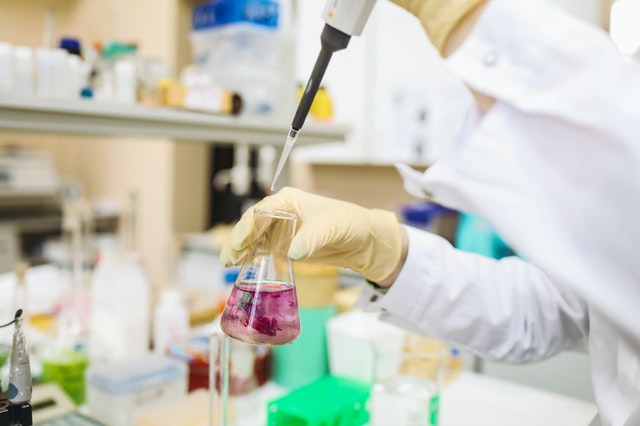The Maryland Tech Council (MTC) plans to use its recently announced $2.5 million of state funds to grow the BioHub Maryland initiative, as well as place more workers where the local life sciences industry needs them.
This new funding comes soon after MTC’s receipt of $2.45 million in federal money, which Maryland Sen. Chris Van Hollen (who chairs the US Senate Appropriations Committee’s subcommittee for financial services and general government) helped allocate. This brings the total amount of recent government funds up to $4.95 million, the sum of which MTC will use to build out the initiative. BioHub Maryland doubles as both a business development program for small businesses and a workforce development program to help people break into life sciences careers.
The new state money was earmarked in Governor Larry Hogan’s new Maryland Cancer Moonshot Initiative, which aims to expand and accelerate cancer detection, screening, prevention, treatment and research work in the state.
“An exceptional life science workforce is fundamental to discovering and manufacturing cures and treatments for cancer and other diseases,” said Marty Rosendale, CEO of the MTC, in a statement. “BioHub Maryland seeks to grow our life science workforce by engaging talent from diverse educational backgrounds and demonstrating the immense value of a biotech career in Maryland.”
The state funds will be used “to identify current workforce gaps in Maryland and to generate stronger local demand for life science careers, especially among those who do not have advanced degrees,” according to the press release. Another long term goal involves BioHub Maryland overseeing a shared biomanufacturing space.
These workforce development opportunities principally now live on BioHub Maryland’s website. Rosendale previously outlined a vision of what a state life sciences job creation program could look like. He wants a joint curriculum, designed by Maryland life science businesses and universities, that guarantees employers get biomanufacturing students with the necessary skills.
He also wants to build a job creation program to address those workforce gaps, including the provision of wraparound services to ease career transitions and entry. Services could range from paying for daycare, so a single parent can get job training, or subsidizing transportation to and from a training facility.
“We’re going to need to teach skill sets specific to biomanufacturing and pharmaceutical manufacturing that are not typically taught in colleges as a part of traditional academic programs,” Rosendale said. “We will also be appointing an advisory council and conducting a workforce needs assessment. We look forward to sharing our work on these programs in the coming months.”
Donte Kirby is a 2020-2022 corps member for Report for America, an initiative of The Groundtruth Project that pairs young journalists with local newsrooms. This position is supported by the Robert W. Deutsch Foundation.Before you go...
Please consider supporting Technical.ly to keep our independent journalism strong. Unlike most business-focused media outlets, we don’t have a paywall. Instead, we count on your personal and organizational support.
3 ways to support our work:- Contribute to the Journalism Fund. Charitable giving ensures our information remains free and accessible for residents to discover workforce programs and entrepreneurship pathways. This includes philanthropic grants and individual tax-deductible donations from readers like you.
- Use our Preferred Partners. Our directory of vetted providers offers high-quality recommendations for services our readers need, and each referral supports our journalism.
- Use our services. If you need entrepreneurs and tech leaders to buy your services, are seeking technologists to hire or want more professionals to know about your ecosystem, Technical.ly has the biggest and most engaged audience in the mid-Atlantic. We help companies tell their stories and answer big questions to meet and serve our community.
Join our growing Slack community
Join 5,000 tech professionals and entrepreneurs in our community Slack today!

The person charged in the UnitedHealthcare CEO shooting had a ton of tech connections

Delaware students take a field trip to China using their tablets and ChatGPT

From rejection to innovation: How I built a tool to beat AI hiring algorithms at their own game



